
Singapore & Saudi Arabia – As Muslims globally prepare for the sacred pilgrimages of Hajj and Umrah, ensuring optimal health is paramount.1 In light of evolving global health landscapes and the unique challenges of mass gatherings, the Ministry of Health (MOH) in Singapore, in consultation with the Islamic Religious Council of Singapore (MUIS) and the Communicable Diseases Agency (CDA), has recently updated its vaccination requirements for pilgrims from Singapore travelling to Saudi Arabia.2 These updates aim to safeguard the health of pilgrims throughout their spiritual journey and to protect them from infectious diseases prevalent in crowded environments. This comprehensive advisory underscores Singapore's proactive approach to pilgrim welfare and aligns with international best practices for mass gatherings.This detailed article will outline the mandatory and recommended vaccinations for Hajj and Umrah pilgrims from Singapore, elaborate on the importance of each vaccine, discuss the pre-travel health preparations, and provide practical advice for a safe and healthy pilgrimage.4 Understanding these updated vaccination requirements is crucial for all prospective pilgrims.
1. The Core Protection: Mandatory Vaccinations for Hajj and Umrah
Singapore's updated guidelines now stipulate three mandatory vaccinations for all pilgrims undertaking Hajj or Umrah: the Meningococcal ACWY vaccine, the Influenza (flu) vaccine, and the COVID-19 vaccine. These vaccinations are deemed essential due to the high risk of transmission of these diseases in large gatherings like the Hajj and Umrah pilgrimages. Proof of all three mandatory vaccinations must be shown before departure from Singapore and may be requested at immigration checks upon arrival in Saudi Arabia.
1.1. Meningococcal ACWY Vaccine: The Saudi Requirement
The Meningococcal ACWY vaccine remains a cornerstone of Hajj and Umrah vaccination requirements, mandated by the Saudi Ministry of Health for all international pilgrims.6 This vaccine provides crucial protection against meningococcal disease, a serious bacterial infection caused by Neisseria meningitidis.7 This infection can lead to life-threatening conditions such as meningitis (inflammation of the brain and spinal cord lining) and septicemia (blood poisoning).8 The risk of contracting this disease dramatically increases in mass gatherings, where prolonged close contact and communal living create ideal conditions for its spread.
- Type of Vaccine: Pilgrims must receive the quadrivalent meningococcal vaccine (ACWY), which offers protection against four common strains of the bacteria: A, C, W, and Y.
- Timing of Vaccination: The Meningococcal ACWY vaccine must be administered at least 10 days before departure to allow sufficient time for immunity to develop.
- Validity: The quadrivalent meningococcal conjugate vaccine is typically valid for 5 years, while the polysaccharide vaccine (which is no longer registered in Singapore) was valid for 3 years. Pilgrims should ensure their vaccination is still valid for their planned travel dates.
- Proof: Proof of Meningococcal vaccination must be presented in travel documents.12
The Meningococcal vaccine is absolutely vital. Without it, pilgrims face a significant health risk and may be denied entry into Saudi Arabia.13 This vaccination is a non-negotiable part of the Haj and Umrah preparation for pilgrims from Singapore.
1.2. Influenza (Flu) Vaccine: Mitigating Respiratory Risks
The Influenza vaccine is now a mandatory requirement for all Singaporean Haj and Umrah pilgrims, reflecting an increased emphasis on preventing respiratory infections.14 While common, influenza can be particularly disruptive and potentially severe during a pilgrimage.15 The physically demanding nature of Hajj, coupled with close contact with millions of people from diverse geographical locations, creates an environment ripe for the rapid transmission of flu viruses.16
- Timing of Vaccination: The Influenza vaccination must be received within 12 months before the travel date.17 This ensures pilgrims are protected by the most current flu vaccine, as strains change annually.
- Importance: Getting the flu shot not only protects the individual pilgrim from severe illness but also significantly reduces the risk of transmitting the flu to others, including vulnerable individuals within the pilgrimage community.18 A flu infection can lead to complications such as pneumonia, which can be life-threatening, especially for older pilgrims or those with underlying health conditions.19 This vaccination is a key preventive measure against widespread illness during Haj and Umrah.20
- Proof: Pilgrims must provide proof of their Influenza vaccination.
The Influenza vaccine is a strategic measure by Singaporean health authorities to reduce the burden of respiratory illnesses during Haj and Umrah, promoting a safer environment for all.
1.3. COVID-19 Vaccine: Continued Vigilance
Despite the receding global pandemic, the COVID-19 vaccine remains a mandatory requirement for Singaporean Haj and Umrah pilgrims.21 The risk of infection persists, particularly in large gatherings, and vaccination plays a crucial role in preventing severe illness, hospitalization, and onward transmission within the pilgrim community.
- Proof of Immunisation: Pilgrims must demonstrate proof of COVID-19 immunisation by fulfilling one of the following conditions:
- Receiving a single dose of the updated COVID-19 vaccine for the 2024-2025 season.22
- Completing the primary vaccination series (typically two or more doses received during 2021 to 2023).23
- Providing laboratory-confirmed proof of recovery from a COVID-19 infection during the year 2024.24
- Importance: This vaccination helps safeguard the individual pilgrim's health and contributes to collective immunity, reducing the overall risk of outbreaks during Haj and Umrah.25 The close quarters and long hours involved in travel and rituals increase the chances of exposure, making the COVID-19 vaccine a critical protective layer.
- Note: Singaporean citizens, permanent residents, and valid pass holders are generally eligible for free COVID-19 vaccination.26
The COVID-19 vaccine requirement reflects a continued commitment to public health safety in the context of international mass gatherings, ensuring that pilgrims can perform their rituals with greater peace of mind.27
2. Beyond the Mandatory: Recommended Vaccinations and Health Advice
While the Meningococcal, Influenza, and COVID-19 vaccines are mandatory, the MOH and CDA in Singapore also strongly recommend that pilgrims ensure they are up-to-date with other nationally recommended vaccinations and adhere to general health best practices.28 These recommendations are crucial for comprehensive protection
2.1. Nationally Recommended Vaccinations
Pilgrims should review their National Adult Immunisation Schedule (NAIS) and National Childhood Immunisation Schedule (NCIS) to ensure all routine vaccinations are current. This is particularly important for older pilgrims and those with underlying medical conditions, who may be more vulnerable to various infections.
- Pneumococcal Vaccine: This vaccine is highly recommended, especially for elderly and medically vulnerable pilgrims, such as those aged 65 years and older, children below 5 years of age, or individuals aged between 5 and 64 years with certain chronic medical conditions (e.g., diabetes, chronic lung disease, kidney disease, immunodeficiency).29 The pneumococcal vaccine protects against infections caused by Streptococcus pneumoniae, which can lead to severe pneumonia, meningitis, and bloodstream infections.30 These conditions can be life-threatening and are a significant concern in crowded environments.
- Routine Vaccines: Pilgrims should also ensure they are updated on other routine vaccinations as per the NAIS and NCIS, which may include:
- Measles, Mumps, and Rubella (MMR)
- Varicella (Chickenpox)
- Hepatitis B
- Diphtheria and Polio (especially for children)
Pilgrims should consult their healthcare provider to assess their individual vaccination needs and receive any necessary booster shots or additional vaccinations.
2.2. General Health Advisory and Preventive Measures
Beyond vaccinations, the MOH and CDA emphasize the importance of general health practices to prevent infections during Haj and Umrah.
- Pre-Travel Consultation: Prospective pilgrims should consult their healthcare provider four to six weeks prior to travel. This consultation should include a travel health risk assessment, advice on required or recommended vaccinations, and preventive medications (prophylaxis). This is a crucial step before purchasing a Haj package from a MUIS-appointed travel agent.
- Good Personal Hygiene:
- Frequent hand washing with soap and water (especially before handling food, eating, or after using the toilet, or after coughing/sneezing).32
- Using an alcohol-based hand sanitiser (at least 60% alcohol) when water is not available.
- Food and Water Safety:
- Consume only fully cooked food.
- Wash fruits and vegetables properly before eating.34
- Avoid raw and unpasteurised milk, undercooked meats and seafood, or food prepared under unsanitary conditions.
- Avoid Close Contact:
- Avoid close contact with unwell individuals, particularly those with respiratory infections.37
- Avoid contact with camels and other animals, including visits to camel farms.38 If contact occurs, wash hands thoroughly with soap.
- Mask Wearing: Pilgrims are advised to wear masks (surgical masks), especially in crowded places like the Grand Mosque, during rituals, or on public transport.
- Medical Conditions: Pilgrims with pre-existing major medical conditions (e.g., diabetes, chronic lung disease, chronic renal disease, immunodeficiency) should consult a doctor before travelling to assess40 if the pilgrimage is medically advisable.41 They should also carry sufficient medication and medical reports.
- Post-Travel Monitoring: If a pilgrim becomes unwell while travelling or within two weeks of returning to Singapore, they should seek medical attention promptly and inform the doctor of their travel history. This helps in early diagnosis and prevention of the spread.
- Digital and Physical Records: Pilgrims are highly recommended to carry both physical vaccination certificates and digital vaccination records (e.g., via the HealthHub app) for border checks in Saudi Arabia.42
These comprehensive health guidelines, coupled with the updated vaccination requirements, aim to ensure that pilgrims are as prepared as possible to face the health challenges of Hajj and Umrah.
3. Understanding the Context: Why These Vaccinations Are Essential
The mass gathering nature of Haj and Umrah presents unique public health challenges. Millions of people from diverse geographical locations converge in a relatively small area, increasing the risk of infectious disease transmission.
3.1. The Threat of Infectious Diseases at Mass Gatherings
Mass gatherings like Haj and Umrah are known risk factors for the rapid spread of various communicable diseases. Factors contributing to this include:
- High Population Density: Close proximity of pilgrims in confined spaces (e.g., mosques, accommodation, transportation).
- Intermixing of Populations: Pilgrims from all over the world, potentially bringing different disease strains.
- Fatigue and Stress: The physical demands of the pilgrimage can weaken the immune system, making pilgrims more susceptible to infection.
- Shared Facilities: Communal living, shared food, and public transport can facilitate pathogen transmission.
- Environmental Factors: Heat and dust can exacerbate respiratory conditions.
- Therefore, vaccinations are a crucial public health intervention to protect individual pilgrims and prevent widespread outbreaks, which could have severe consequences for the entire pilgrimage.
3.2. Specific Risks in Saudi Arabia
Beyond the general risks of mass gatherings, pilgrims should be aware of specific health concerns in Saudi Arabia, which underscore the importance of vaccination and health precautions:
- Middle East Respiratory Syndrome (MERS-CoV): While the COVID-19 vaccine is addressed, pilgrims should also be aware of MERS-CoV, a viral respiratory disease caused by a coronavirus. MERS cases have occurred in the Arabian Peninsula.51 The MOH advisory specifically cautions against contact with camels and camel products (raw meat, unpasteurised milk, urine) as camels are a known reservoir for the virus.
- Food and Waterborne Diseases: Strict food and water hygiene are important to prevent diarrheal diseases and other foodborne illnesses.
- Heat Stress: High temperatures, especially during summer Hajj, can lead to heatstroke and dehydration.52 Proper hydration and seeking shade are vital.
The updated vaccination requirements and health advisories are designed to address these specific risks, allowing pilgrims to focus on their spiritual journey without undue health concerns.
4. Planning for a Safe Pilgrimage: Practical Steps for Singaporean Pilgrims
Effective planning is key to a healthy and fulfilling Haj or Umrah. Singaporean pilgrims are encouraged to take proactive steps well in advance of their travel dates.
4.1. Consultation with Healthcare Providers
As advised by MOH and CDA, pilgrims should initiate discussions with their healthcare provider at least four to six weeks prior to travel. This timeframe allows for:
- Personalized Risk Assessment: A doctor can assess individual health conditions, age, and previous vaccination history to recommend a tailored vaccination plan.54
- Vaccine Availability: Ensuring that all required and recommended vaccines are available and can be administered within the necessary timeframe (e.g., the 10-day pre-departure window for Meningococcal vaccine).
- Preventive Medications: Discussion about preventive medications, such as anti-malarials (if applicable to the specific itinerary, though generally not a primary concern for the holy cities themselves), or medication for chronic conditions.55
- Travel Health Advice: Comprehensive advice on managing existing medical conditions during travel, food safety, and personal hygiene.
4.2. Coordinating with MUIS-Appointed Travel Agents
Pilgrims typically book their Haj or Umrah packages through MUIS-appointed travel agents in Singapore. These agents often provide guidance on travel logistics, including vaccination requirements. Pilgrims should ensure their chosen package adheres to all health and safety guidelines. MUIS plays a crucial role in communicating updated vaccination requirements to pilgrims.
4.3. Documentation: Physical and Digital Records
Crucially, pilgrims must carry both physical vaccination certificates and digital vaccination records (e.g., via the HealthHub app in Singapore). This dual approach ensures that proof of vaccination is always accessible and verifiable by Saudi Arabian border authorities. The HealthHub app provides a convenient digital record of an individual's vaccination status in Singapore.
Table 1: Key Vaccination Requirements and Timelines for Singaporean Pilgrims
Vaccine Category | Requirement/Recommendation | Timing/Validity |
Meningococcal ACWY | Mandatory | Must be completed at least 10 days before departure. Quadrivalent conjugate vaccine valid for 5 years. Proof of vaccination required. |
Influenza (Flu) Vaccine | Mandatory | Must be received within 12 months before travel date. Proof of vaccination required. |
COVID-19 Vaccine | Mandatory | Proof of: 1) Single dose of updated vaccine for 2024-2025 season, OR 2) Completion of primary series (2021-2023), OR 3) Lab-confirmed recovery from infection in 2024. Proof of vaccination required. |
Pneumococcal Vaccine | Recommended | Especially for elderly, children below 5, and medically vulnerable individuals (5-64 years with chronic conditions). Consult doctor. |
Routine Vaccinations | Recommended | Ensure up-to-date with NAIS/NCIS (e.g., MMR, Varicella, Hepatitis B, Diphtheria, Polio). Consult doctor. |
Yellow Fever Vaccine | Not Mandatory | Only if arriving from or transiting through a yellow fever endemic country. Consult doctor if applicable. (Generally not required for direct travel from Singapore). |
Pre-Travel Consultation | Highly Recommended | 4-6 weeks prior to travel, for health risk assessment, advice on vaccinations, and preventive medications. |
Documentation | Required | Carry both physical vaccination certificates and digital records (e.g., HealthHub app) for border checks in Saudi Arabia. |
5. Beyond Vaccinations: Ensuring Holistic Well-being
While vaccinations are a critical protective layer, pilgrims must also prioritize their overall well-being. The Haj and Umrah pilgrimages are physically and emotionally demanding.
5.1. Physical Readiness
- Gradual Physical Preparation: Engage in regular physical activity in the months leading up to the pilgrimage to build stamina.60 This includes walking, especially with footwear similar to what will be used in Saudi Arabia.
- Managing Chronic Conditions: Pilgrims with pre-existing medical conditions should have a thorough medical check-up, ensure their conditions are well-managed, and carry sufficient medication for the entire trip, along with a doctor's letter explaining their medical history and prescriptions.61
- Hydration: Staying well-hydrated is crucial, especially in the hot climate of Saudi Arabia.62 Drink plenty of Zamzam water and other fluids.
- Foot Care: Proper foot care is essential, given the extensive walking.63 Wear comfortable shoes and address any foot issues proactively.
5.2. Mental and Emotional Preparedness
The Haj and Umrah are profound spiritual journeys that can also be emotionally challenging due to large crowds, long hours, and potential discomfort.64
- Patience and Resilience: Cultivate patience and mental resilience. Unexpected delays or challenges are part of the journey.
- Focus on Spirituality: Maintain focus on the spiritual objectives of the pilgrimage.
- Group Support: Rely on and support fellow pilgrims within your group.
- Rest: Despite the busy schedule, try to get adequate rest whenever possible to avoid fatigue and burnout.
Conclusion
Singapore's updated vaccination requirements for Haj and Umrah pilgrims reflect a comprehensive and responsible approach to public health, prioritizing the safety and well-being of its citizens embarking on this sacred journey. By making the Meningococcal, Influenza, and COVID-19 vaccines mandatory, and strongly recommending others like the pneumococcal vaccine, the MOH, MUIS, and CDA aim to minimize health risks associated with mass gatherings.65
Pilgrims from Singapore must take these updated vaccination requirements seriously, planning their appointments well in advance of their departure date for Haj or Umrah. Consulting healthcare providers for a personalized assessment, obtaining all necessary vaccinations within the specified timelines, and carrying both physical and digital vaccination records are critical steps. Beyond vaccinations, adhering to stringent personal hygiene, food safety, and general health advice will further enhance a pilgrim's protection.
This proactive stance ensures that Singaporean pilgrims can perform their spiritual obligations with greater peace of mind, contributing to a safer and healthier environment for all participants in the holy cities of Makkah and Madinah. The emphasis on comprehensive health preparedness, from mandatory vaccinations to general well-being, underscores Singapore's commitment to supporting its pilgrims on their profound journey of faith.
;
More Travel News
-
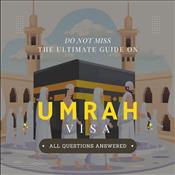 16-Jan-2024New Year Brings New Visa Rules for Pakistanis
16-Jan-2024New Year Brings New Visa Rules for Pakistanis -
.webp) 04-Jul-2025The Evolving Sands of Gulf Tourism: Why UAE, Qatar, and Saudi Travelers Are Shifting Away from Traditional Shopping Malls
04-Jul-2025The Evolving Sands of Gulf Tourism: Why UAE, Qatar, and Saudi Travelers Are Shifting Away from Traditional Shopping Malls -
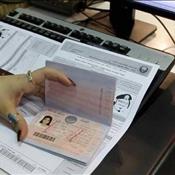 12-Aug-2021This Is How UAE Residents Can Check Their Visa Validity To Return Home
12-Aug-2021This Is How UAE Residents Can Check Their Visa Validity To Return Home -
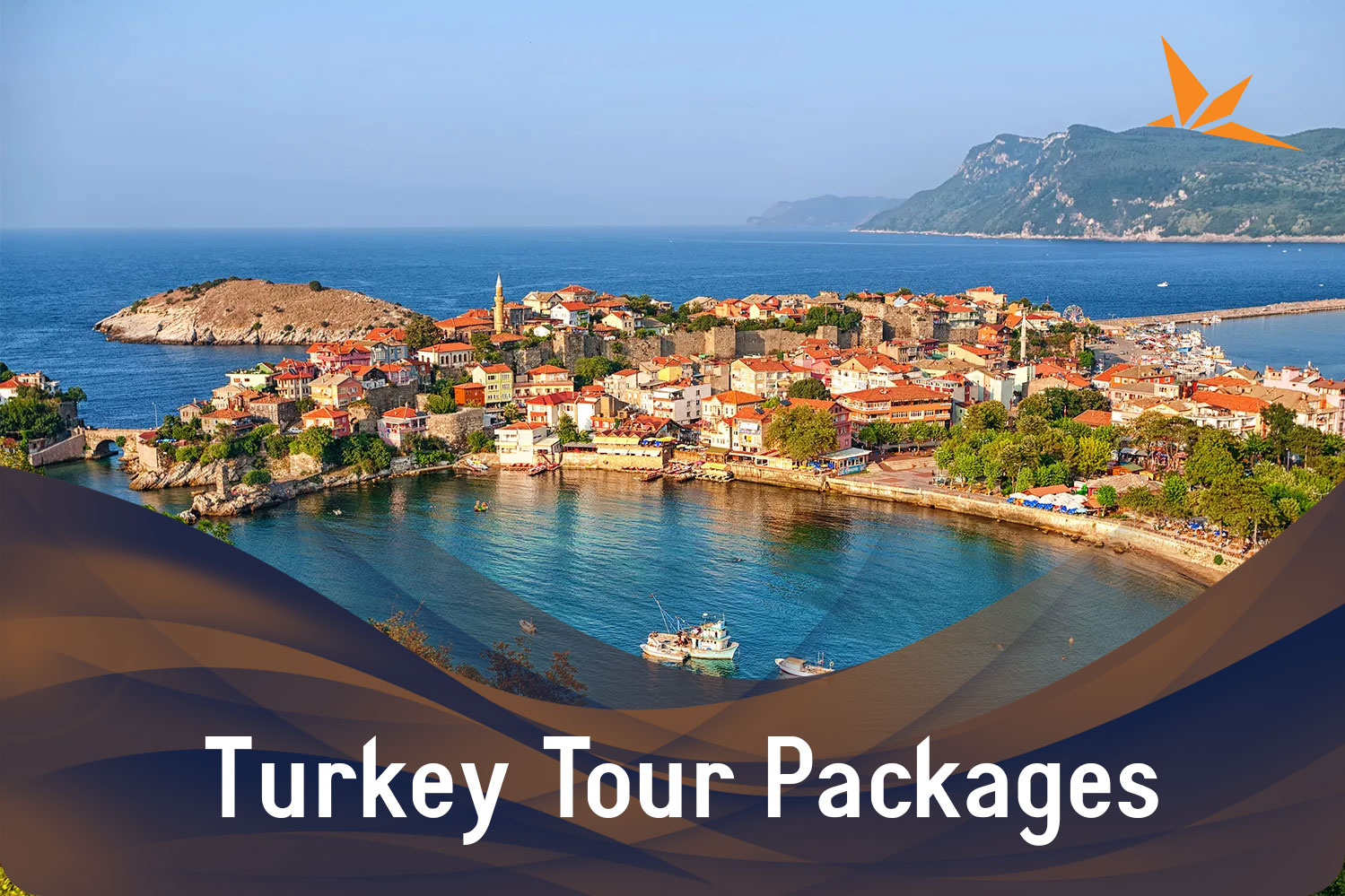 08-Sep-2025Budget-Friendly Turkey Tour Packages with Direct Flights from Pakistan
08-Sep-2025Budget-Friendly Turkey Tour Packages with Direct Flights from Pakistan -
 06-May-2021Travelling The Middle East Will Be The Easiest Than Before In The Coming Days
06-May-2021Travelling The Middle East Will Be The Easiest Than Before In The Coming Days -
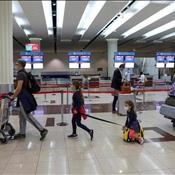 01-Sep-2021Emirates Updates The Dubai Travel Requirements For Pakistani Passengers
01-Sep-2021Emirates Updates The Dubai Travel Requirements For Pakistani Passengers -
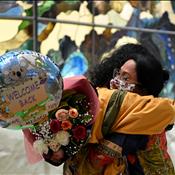 27-Feb-2022Australia Border Reopens After Two Years
27-Feb-2022Australia Border Reopens After Two Years -
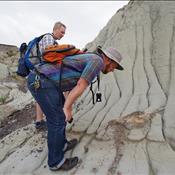 20-Jul-2019Dino Safari for families is really a haunted place
20-Jul-2019Dino Safari for families is really a haunted place -
 22-Apr-2025Pilgrims Strongly Urged to Comply with Saudi Hajj Rules
22-Apr-2025Pilgrims Strongly Urged to Comply with Saudi Hajj Rules -
 31-Oct-2024Fly Jinnah Expands International Reach with New Routes to Saudi Arabia from Lahore
31-Oct-2024Fly Jinnah Expands International Reach with New Routes to Saudi Arabia from Lahore -
.webp) 27-May-2025A New Era of Opportunity: Kuwait Ends 19-Year Visa Ban on Pakistanis
27-May-2025A New Era of Opportunity: Kuwait Ends 19-Year Visa Ban on Pakistanis -
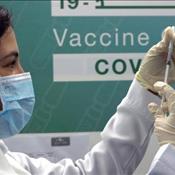 25-Aug-2021Saudi Arabia news about Cyano and Cyano farm Vaccine
25-Aug-2021Saudi Arabia news about Cyano and Cyano farm Vaccine
